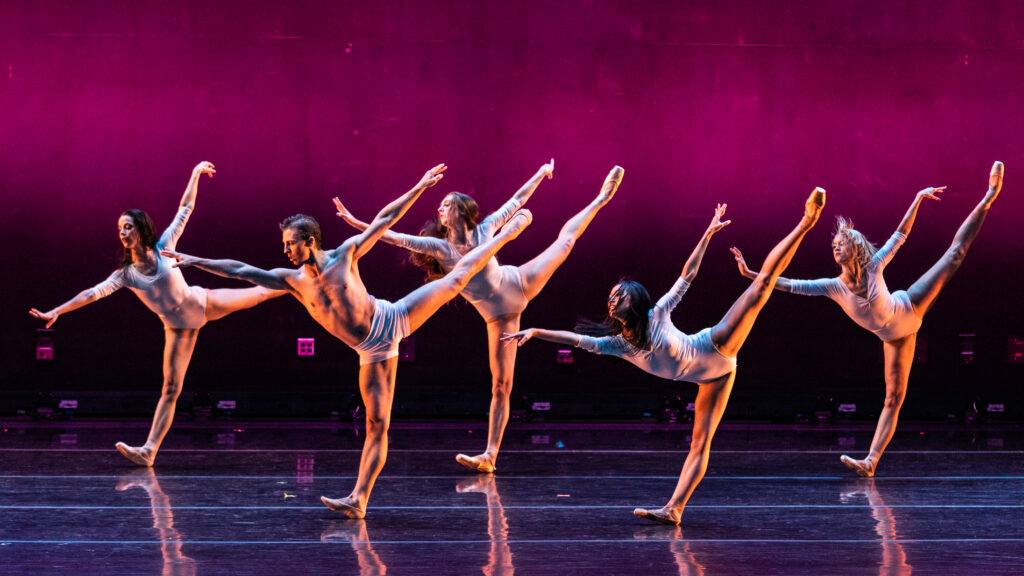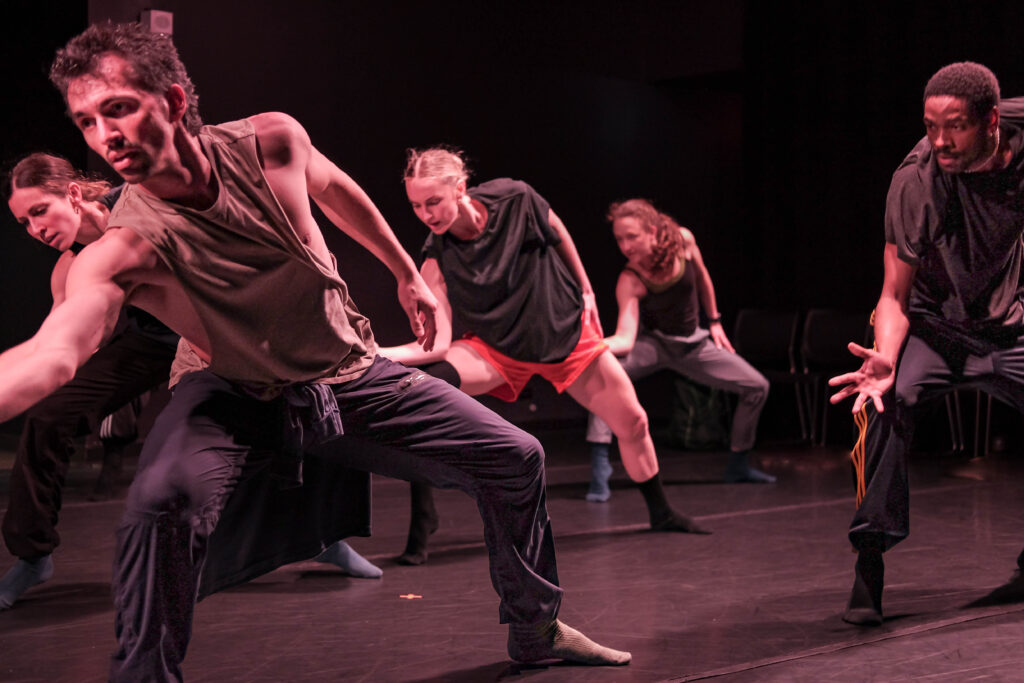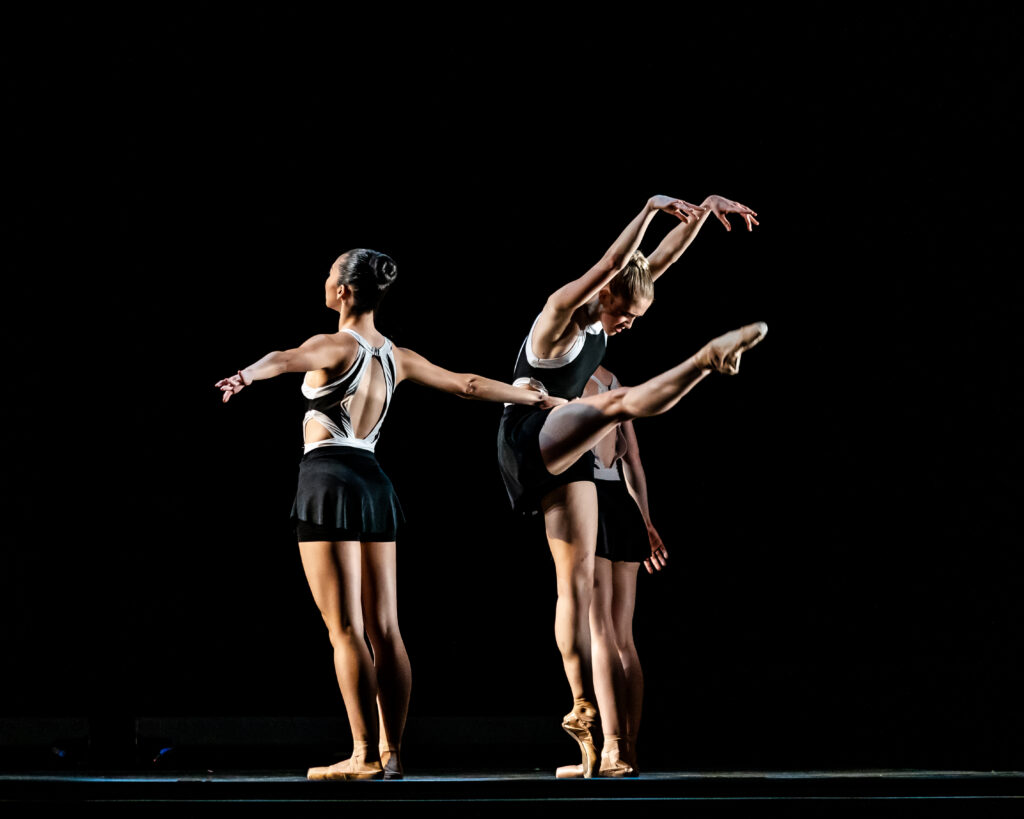When Gavin Stewart and Vanessa Owen had been launching the modern firm Stewart/Owen Dance in Asheville, North Carolina, they acquired some stunning recommendation. “Somebody who labored in advertising on this area mentioned that, when describing our firm, ‘You most likely shouldn’t point out that you just’re from right here, as a result of that would negatively affect your ticket gross sales,’ ” Owen recollects.
They didn’t observe that suggestion. Nevertheless it did make them take into consideration one thing that will grow to be elementary to their firm’s mission. “Why was ‘native’ a very good phrase when speaking about meals, however with regards to performing arts, folks get somewhat bizarre about it?” Owen asks. “And the way can we alter that perspective on this group? We knew there have been unbelievable artists right here, however there was a little bit of a picture downside.”
Within the performing arts, it’s usually assumed that audiences think about worldwide or “massive metropolis” imports larger high quality than domestically produced expertise and creativity. However for many years, regional corporations have been proving that false. Dance leaders with robust private ties to their areas are constructing organizations that, quite than aspiring to nationwide fame, are proudly figuring out with and reflecting their communities; offering constant, fulfilling work to native artists; and constructing dance infrastructure past established hubs. Whereas these “homegrown” corporations might have comparatively low profiles, they’re an important a part of the nationwide dance panorama.
Seeing and Filling a Want
Private connections to a spot afford the administrators and dancers of a neighborhood firm an astute understanding of its dance scene. When dance artist Banning Bouldin, a Nashville native, returned to her hometown after a busy worldwide performing profession, she “may see there was this power, this starvation for newness, and a need to assist native,” she says. When she based the modern dance apply New Dialect, there was no infrastructure in place for skilled modern dance artists to coach every day and collaborate on initiatives in Nashville, however there was a wealth of expertise. “I felt a confluence of needs to construct what had been lacking for me as a younger dancer rising up, and what was nonetheless lacking for all of the actually proficient artists there now,” she says. “All they lacked was publicity.”

Owen/Cox Dance Group in Kansas Metropolis, Missouri, started when dancer Jennifer Owen and her husband, composer Brad Cox, noticed an unfilled, distinctly Kansas Metropolis–model alternative that meshed with their ability units. “Kansas Metropolis is the one UNESCO web site in North America for dwell music,” Owen says. “But as an organization committed to presenting reveals the place music is as essential because the dancing, we’re distinctive to our space.”


Native audiences are sometimes hungry for one thing uniquely theirs, says Katie Puder, founding father of Dallas’ Avant Chamber Ballet. “As a ballet firm utilizing the classical vocabulary in a contemporary means, we’re reacting to what the town of Dallas is like proper now, which is a extra liberal-minded, much less conventional place,” she says. “It’s actually welcoming to new works centered on collaboration and dwell music.”

An emphasis on homegrown tradition can entice new audiences, too. “So many viewers members who had been regulars at The Joyce or Jacob’s Pillow have mentioned to me, ‘We’re so fortunate you’re right here. Asheville wants this,’ ” says Nick Kepley, managing director of Stewart/Owen Dance. “And since there’s a lot tourism right here, there’s a starvation for issues which are genuine, native and actual.”
Challenges and Benefits
Whereas they face the identical funding challenges as every other firm, homegrown teams have a singular angle in searching for donations and grants. The possibility to assist one thing that may be promoted as a everlasting a part of a metropolis’s points of interest usually intrigues native funders.
Bouldin’s skilled expertise was a compelling narrative when assembly with potential donors. “There was a stage of belief as a result of I used to be from Nashville and had attention-grabbing tales to inform concerning the work I’d finished as an artist and the collaborators I needed to usher in,” she says. Exterior of the town, although, she’s nonetheless battling entrenched regional stereotypes. “In Nashville itself, I really feel numerous assist for native dance artists, however I did should work twice as exhausting with nonlocal presenters and gatekeeping entities in opposition to this notion of Southern as under-cultured or under-exposed,” she says. Stewart agrees. “We’re carving a brand new lane right here in western North Carolina, so we’re having to each educate and domesticate a donor base,” he says.
Symbiotic Partnering
Fostering relationships with native artists and organizations can present inventive assist techniques for homegrown corporations. In 2014, New Dialect started a partnership with Nashville’s Metro Parks and Recreation Dance Division to develop modern dance applications for youth and adults in trade for rehearsal house at a city-owned facility. “Since then, our relationship has solely grown and deepened,” Bouldin says. “We provide group lessons yr spherical and rent lecturers domestically and nationally. Right now this feels far more like constructing a group collectively and fewer like fulfilling the phrases of an trade. And we’ve by no means needed to pay for rehearsal house.”


Heartfelt funding in a group’s well-being is a trademark of those corporations, whose instructional applications are sometimes designed to immediately join contributors with firm artists. “Anybody who takes class by our college is aware of Gavin and Vanessa personally,” Kepley says. “We’re all locals—we see one another on the farmers’ market each week—which makes dance simply that rather more approachable.” Notably, in line with Kepley, about 40 p.c of Stewart/Owen Dance’s donors additionally take part of their grownup group lessons.
Constructing Dance Ecosystems
As a substitute of a “take over the world” progress mentality, many of those corporations are aiming to create wholesome native dance ecosystems, offering constant assist to the members of their creative communities. Owen says the dancers she recruits are on weekly salaries that allow them to prioritize their work with Owen/Cox Dance Group throughout their contract interval. At Avant Chamber Ballet, Puder says, the objective will not be essentially to get larger however to enhance dancer well-being. “I don’t see us turning right into a nationwide ballet firm,” she says. “I’d quite have fewer artists and pay them very well.”
This fall, Stewart/Owen Dance affirmed its artists-first strategy after Hurricane Helene devastated Asheville: Although the corporate was compelled to cancel its fall efficiency sequence and lessons, it dedicated to paying dancers and lecturers half of their anticipated revenue.

As they pioneer forward-looking fashions and concepts, homegrown corporations can generally act like tugboats, serving to to tug larger dance corporations ahead. Puder hopes that altering norms for a couple of dancers at a time could have a “ripple-up” impact on the whole dance scene. “I constructed the sort of firm I needed to bounce for, the place you may discuss brazenly with out concern, there’s a supportive surroundings, and it’s additionally artistically fulfilling,” she says. “That’s simpler to do on a smaller scale versus a giant establishment with a built-in id. And in the event you’ve skilled a spot with a wholesome, fashionable viewpoint of how one can prepare and dance, while you go elsewhere you’re not prepared to be handled badly.”
However these corporations are additionally proving magnetic, placing extra cities on the dance map and making dancers rethink the place their careers can thrive. “Your job as an artist is to faucet into the honesty of your expertise and talk that as clearly as attainable,” says Stewart. “And in the event you’re doing that, why does it matter in the event you’re in Asheville, versus Los Angeles, New York, or London?”


